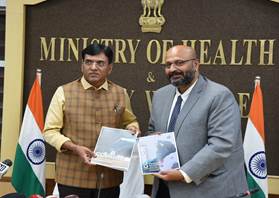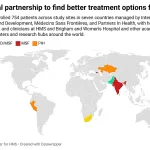February 3, 2024
New observational data from the Black Women’s Health Study indicates that Black women who develop high blood pressure before the age of 35 face a threefold increased risk of experiencing a midlife stroke. The study, which has been monitoring 59,000 participants in the United States since the 1990s, also reveals that those developing hypertension before the age of 45 have twice the risk of suffering a stroke.
Lead author of the study, Hugo J. Aparicio, MD, Associate Professor of Neurology at Boston University Chobanian & Avedisian School of Medicine, highlighted the alarming proportion of young Black women experiencing strokes relatively early in life. This concerning trend poses a potential burden of disability for women who are at a critical juncture in their lives, managing careers and family responsibilities.
Aparicio is set to present the comprehensive data at the International Stroke Conference 2024 in Phoenix, Arizona, next week. The research aims to shed light on the increased risk of strokes in midlife, particularly among Black women, who have higher rates of raised blood pressure and stroke overall.
The Black Women’s Health Study, a prospective study that began in the 1990s, analyzed data from 46,754 stroke-free participants under the age of 65, with a mean age of 42 years. The study found that Black women with hypertension before age 45 had a significantly higher risk of midlife stroke, with a hazard ratio of 2.23 after adjusting for various factors.
The risk of stroke also increased among those with hypertension at midlife ages 45-64 years (HR, 1.69) and was highest for those with hypertension at ages 24-34 years (HR, 3.15). The study emphasizes the potency of hypertension as a key risk factor for stroke.
Aparicio stressed the need for early intervention and awareness, urging both individuals and healthcare providers to address hypertension and stroke prevention early in life. He highlighted the importance of monitoring blood pressure numbers from adolescence and adopting lifestyle changes, including diet, physical activity, and addressing other cardiovascular risk factors.
Commenting on the study, Dr. Michelle A. Albert, immediate past president of the American Heart Association, emphasized the role of regular primary care appointments to screen for high blood pressure and other cardiovascular risk factors. She also pointed out the impact of psychosocial stressors, including financial issues, racism, and neighborhood environments, on the heightened risk for cardiovascular issues among Black women.
The study calls for increased awareness, policy advocacy, and funding for primary prevention measures to address the unique challenges faced by young Black women and reduce the risk of strokes in midlife.











